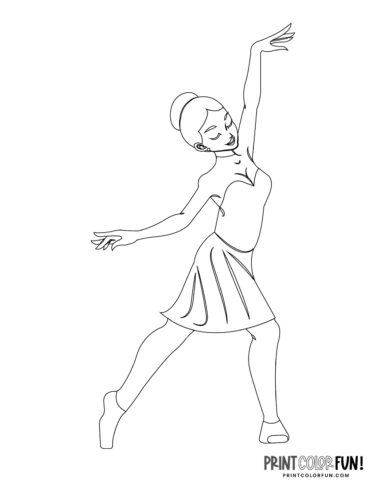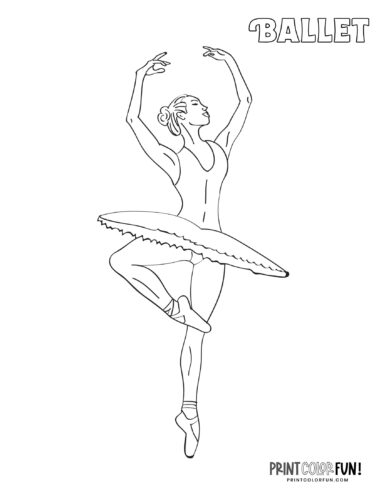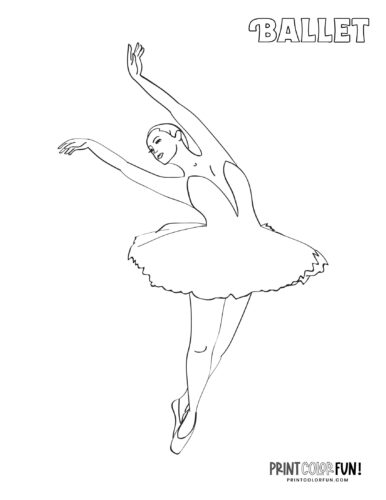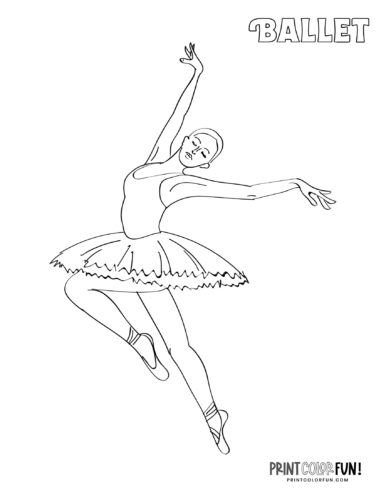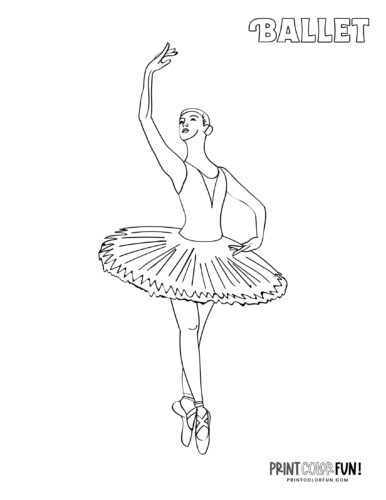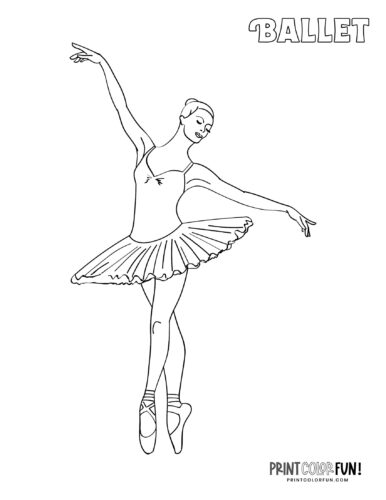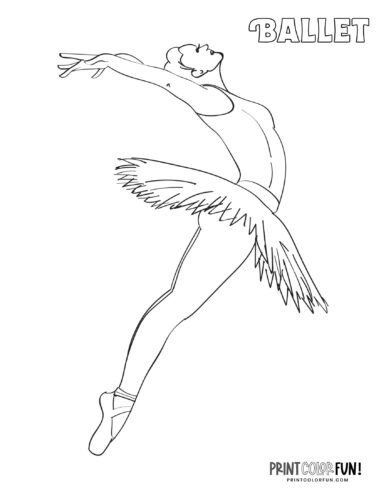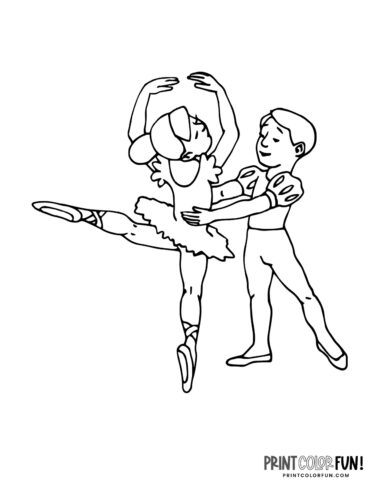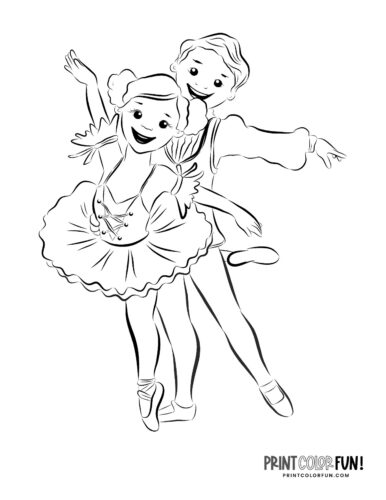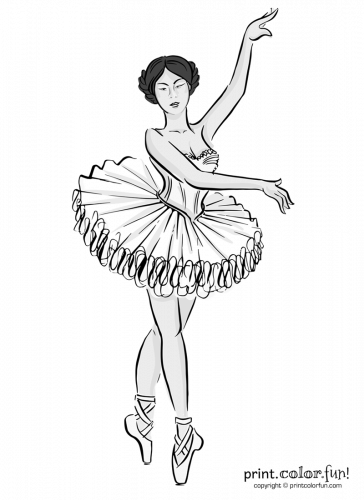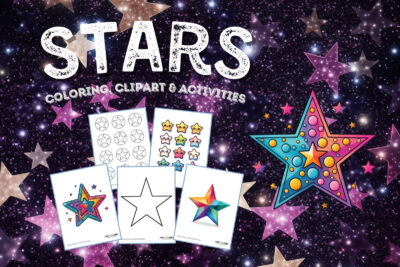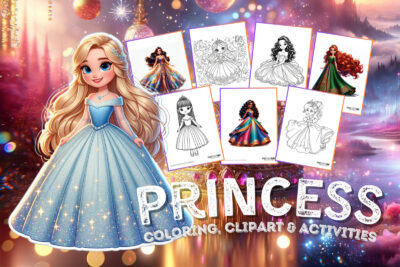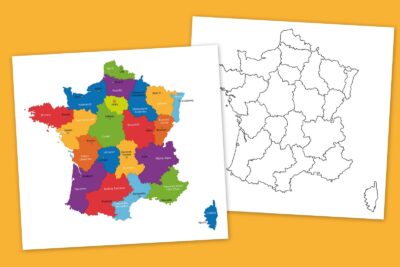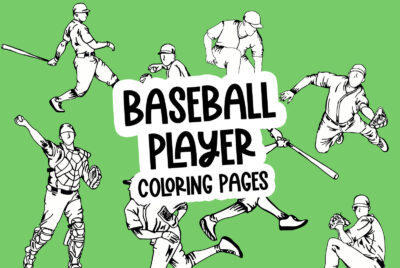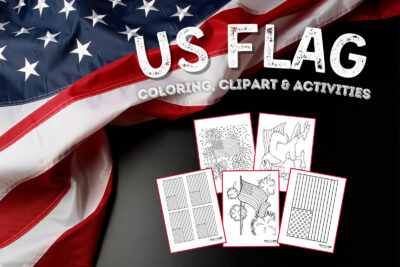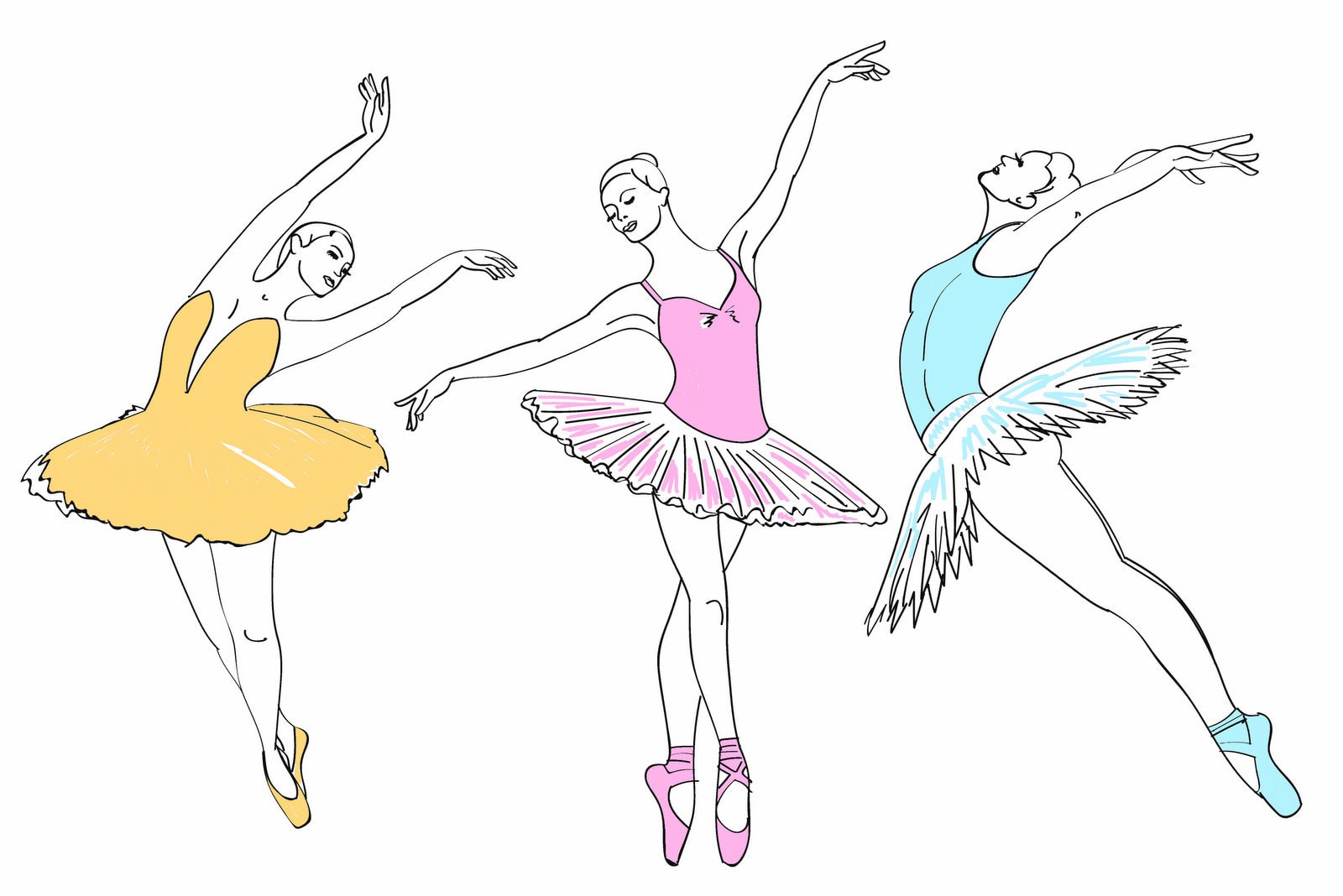
Boost your child’s love for ballet with creative uses of ballerina coloring pages
Click on any of the images below to get a larger printable version, or see all of the printables together at the end of the page!
Coloring isn’t just for fun
You might think that coloring pages are simply a way to keep your little one busy, but they can be so much more than that. Not only are they a creative outlet, but they can also serve as a learning tool, especially if your child is interested in ballet.
These ballet coloring pages can be a fantastic way to ignite your child’s imagination, teach them about the world of ballet, and even help develop skills that will be useful in other areas of life.
Creative ways to use ballerina coloring pages
To get the most out of these artistic printables, you might want to go beyond just handing your child a set of crayons. Here are some ideas:
Build a story
Encourage your child to create a storyline involving the characters on the coloring pages. This helps enhance their storytelling and language skills, while also giving their creativity a chance to shine.
Incorporate crafts
Remember that crayons and markers aren’t the only way to decorate these printables! Try watercolor paints, dot markers, fingerprints from colored stamp pads, glitter pens or colored gel pens.
Cut out the colored pictures afterward, and you can make a mobile, a collage, or mount the images on cardboard or cardstock to make paper dolls. This not only supports fine motor skills, but also gives your child a sense of accomplishment.
ALSO SEE: Baseball gear coloring pages: Balls & bats, mitts & hats
Reinforce the experience
To make the activity even more engaging, consider incorporating some of these enrichment ideas with your ballerina coloring pages activity:
- Play ballet music: Create a playlist of classical ballet tunes to play while your child colors. This will help set the mood and make the activity more immersive.
- Ballet facts: Share trivia about famous ballets, dancers, or history. Your child may find it fascinating to know that the first ballet was performed in the 15th century, for example.
- Incorporate actual dance: After the coloring session, you might try watching a ballet performance, or even doing some simple ballet moves together. It’s a great way to get active and build a deeper appreciation for the art form.
Discuss ballet positions
Ballet is a dance form rich in tradition and technique, and one of its foundational elements is the different positions. While coloring these ballet coloring pages, you have an excellent opportunity to introduce your child to some of these. Here are the basic five positions in ballet that you might talk about:
- First Position: In this stance, the heels are together and the toes point outward, making a straight line.
- Second Position: Similar to the first but with the feet about hip-width apart.
- Third Position: One foot is in front of the other, with the heel of the front foot near the arch of the back foot.
- Fourth Position: The feet are apart, one in front of the other, but not as close as in the third position.
- Fifth Position: The feet are close together, one in front of the other, with the heel of the front foot touching the toe of the back foot.
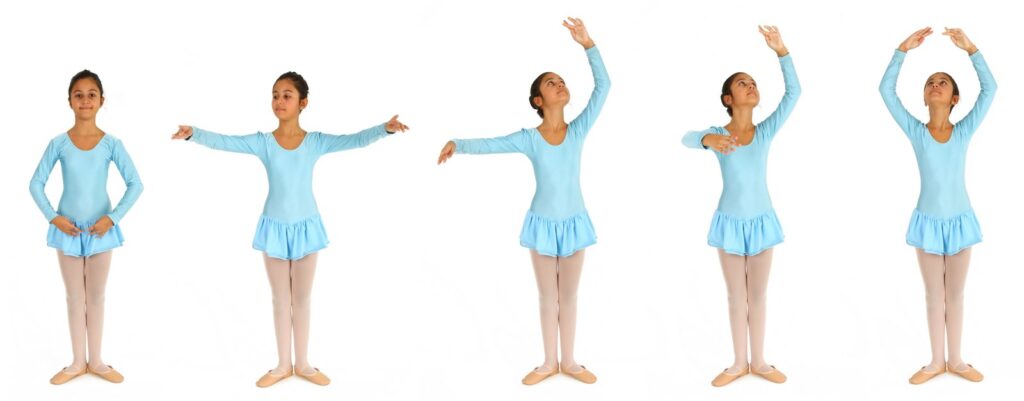
As your child colors in a ballerina, you could point out which position the dancer is in and even try mimicking the position yourselves. This serves as a gentle introduction to the technical aspects of ballet, all while keeping the activity fun and interactive.
Incorporating these educational tidbits doesn’t just make coloring more enriching — it also gives your child a basic vocabulary to describe what they see in ballet performances or classes.
Explaining ‘en pointe’ to a child
If your child is particularly intrigued by ballet, they may be fascinated by the “en pointe” technique, often simply referred to as pointe. This is where a dancer stands on the tips of their toes, supported by specialized pointe shoes.
The image of a ballerina dancing en pointe is iconic, and captures the essence of grace and strength in ballet.
While your child is coloring a ballerina who is en pointe, it’s a great time to explain this technique. You can tell them that dancing en pointe requires a lot of practice and strength, as it involves balancing the entire body weight on the tip of the toes. It’s something that usually only more experienced dancers do, and they wear special shoes to help them.
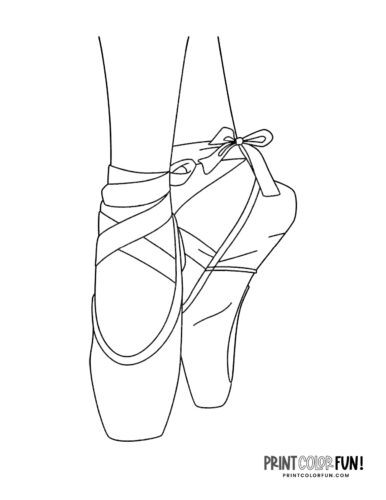
A physical experience
To make it more tangible, you might let your child try standing on their tippy-toes. Of course, it’s not the same as being en pointe in ballet shoes, but it gives a tiny glimpse into the strength and balance required. Remind them that ballet dancers train for years to do this safely and beautifully.
YOU MIGHT LIKE: 30+ mermaid coloring pages: Free fantasy printables
If your child shows an interest in trying ballet and particularly the en pointe technique, it’s crucial to consult with trained professionals for proper guidance. Dancing en pointe before the feet and ankles have fully developed can lead to injuries.
Explaining the en pointe technique not only enhances the coloring activity, but also provides your child with a greater understanding of the skill and dedication involved in ballet — an inspiring topic that illustrates how much can be achieved with passion and hard work.
The joy of shared activities
Whether you’re a parent or caregiver, activities like this offer a golden opportunity to bond with your child. It gives you a chance to share your wisdom, learn from your child’s perspective, and create cherished memories.
So next time you’re looking for a fun and educational activity, don’t underestimate the power of a simple ballerina coloring page. It’s not just child’s play — it’s a doorway to learning and imagination.
Ballet is for everyone: The role of boys and men
While the image of a ballerina often dominates the public’s perception of ballet, it’s essential to remember that boys and men play a crucial role in this art form. If your child is a boy and shows interest in the ballerina coloring pages or ballet in general, that’s fantastic!
Boys in ballet
Boys bring their own unique energy and interpretation to ballet. They often perform jumps, turns, and lifts that require immense strength and precision. Just like girls, boys can start learning ballet at a young age and go on to have many fulfilling experiences, whether as a hobby or a professional career.
The importance of male dancers in professional troupes
In professional ballet companies, male dancers are indispensable. They often partner with female dancers for lifts and turns, and many iconic roles in ballet are written specifically for men. In fact, some of the most famous ballet dancers in history, like Rudolf Nureyev and Mikhail Baryshnikov, have been men.
So, as you and your child explore the world of ballet through coloring pages, you might to include some pages that feature male dancers as well. It’s a simple way to show that ballet is a diverse and inclusive art form that welcomes everyone.
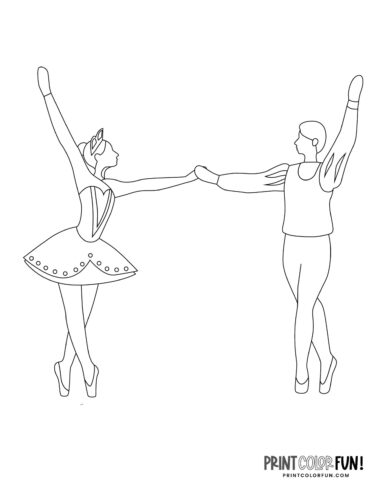
The printable ballerina coloring page set
On these printable pages, elegant and graceful ballet dancers, or ballerinas, are dancing — and some are wearing full tutu skirts.

